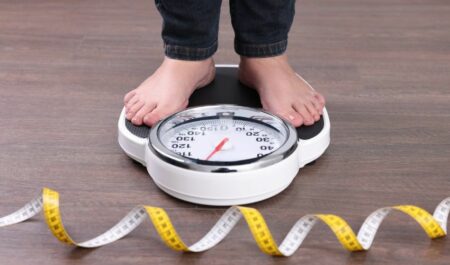The passage of time may make it more challenging for many individuals to either keep a healthy weight or reduce the amount of excess body fat they have. In this article is going to explorer about how to lose belly fat after 50 of age for adults with best suitable methods.
After the age of 50, weight increase may be caused by a number of factors, including unhealthy behaviors, a predominantly sedentary lifestyle, poor food decisions, and metabolic changes.
However, regardless of your physical capabilities or medical diagnoses, you may lose weight at any age by making a few straightforward alterations to your diet and lifestyle.
Here is a list of the top 20 strategies to lose weight after the age of 50.

1. Make Strength Training Something You Look Forward To Doing.
When it comes to weight loss, cardiovascular exercise receives a lot of emphasis, but strength training is just as vital, especially for people who are becoming older.
A condition known as sarcopenia refers to the gradual loss of muscular mass that naturally occurs with advancing age. Loss of muscle mass typically begins around the age of 50 and is associated with a slowed metabolism, which can contribute to an increase in body fat.
When a person reaches the age of 50, their muscle mass begins to gradually diminish at a pace of around 1–2% per year, while their muscle strength begins to gradually decrease at a rate of 1.5–5% per year.
Therefore, include workouts that build muscle as part of your regimen is crucial if you want to slow down the loss of muscle that comes with aging and encourage a healthy body weight.
Strength training, which can include workouts using only one’s own bodyweight as well as lifting weights, can considerably improve muscle strength as well as increase muscle growth and function.
In addition, strength training can assist you in losing weight by lowering your body fat percentage and speeding up your metabolism, both of which can lead to an increase in the number of calories burned during the day.
2. Group Workouts.

It can be difficult to successfully initiate a healthy eating pattern or an exercise routine when you are on your own. You may have a higher chance of sticking to your plan and accomplishing your wellness goals if you do it in collaboration with a friend, co-worker, or member of your own family.
Research has shown, for instance, that people who participate in weight loss programs with friends have a considerably greater likelihood of being able to keep the weight off over time.
In addition, exercising with friends can help you become more committed to a fitness regimen and make working out more fun.
3. Get Up And Move About More And Sit Less.
It is essential to shedding excess body fat to ensure that you burn more calories than you consume. When you are attempting to lose weight, it is essential to increase the amount of activity you engage in throughout the day.
For instance, if you have a profession that requires you to sit for extended periods of time, this could make it more difficult for you to lose weight. To combat this, you can increase the amount of physical activity you get while at work by simply getting up from your desk and going for a walk for five minutes every hour.
The use of a pedometer or Fitbit to count your steps might help you shed extra pounds by elevating your overall activity level and driving up the number of calories you burn throughout the day.
When using a pedometer or Fitbit, you should first establish a step target that is reasonable given the amount of exercise you already get. After that, slowly work your way up to 7,000–10,000 steps a day, or even more if you can, depending on how your health is currently.
4. Increase The Amount Of Protein You Consume.
Not only is consuming a sufficient amount of high-quality protein in your diet vital for weight loss, but it is also essential for preventing or reversing the muscle loss that comes with aging.
After the age of 20, your resting metabolic rate (RMR), which refers to the number of calories you burn while your body is at rest, gradually declines by 1–2% per decade. This is related to the natural breakdown of muscle that occurs with advancing age.
Consuming a diet that is high in protein, on the other hand, can help stop or even reverse the process of muscle loss. In addition, many studies have demonstrated that increasing the amount of protein in your diet can assist in weight loss and make it easier to maintain the weight loss over time.
In addition, studies have shown that older persons have higher requirements for protein than younger ones do. Because of this, it is even more essential to incorporate foods that are high in protein into your meals and snacks.
5. Consult With A Registered Dietician.
It can be challenging to find a routine of eating that not only helps you lose weight but also nourishes your body at the same time.
You can identify the best approach to lose excess body fat without having to follow an extremely restrictive diet by seeking the advice of a trained dietitian who can help you determine the best way to reduce excess body fat. In addition, a dietician can provide support and direction to you throughout the entirety of your journey to lose weight.
According to research, working with a nutritionist to lose weight can lead to much better results than trying to lose weight on your own, and it may help you keep the weight off in the long run.
6. Make/Cook More Of Your Meals At Home.
Numerous studies have shown that individuals who cook and consume a greater number of meals at home tend to adhere to a healthier diet and weigh less than individuals who do not do either of these things.
When you prepare meals at home, you have complete control over the ingredients that go into the recipes as well as those that are left out. It also gives you the opportunity to try out new, interesting, and nutritious ingredients that stimulate your curiosity.
If you eat the majority of your meals away from home, you should begin by preparing one or two meals each week at home, and then gradually increase the number of meals you prepare at home until you are preparing more meals at home than you are eating out.
7. Eat More Veggies and Fruits.

Increasing your consumption of fruits and vegetables, which are both rich in nutrients that are important to your wellbeing, is a straightforward and scientifically supported strategy for reducing excess body fat.
For instance, an analysis of ten separate studies indicated that increasing the amount of vegetables consumed on a daily basis by one serving was associated with a reduction of 0.14 inches (0.36 centimeters) in a woman’s waist circumference.
Another study involving 26,340 men and women between the ages of 35 and 65 found a correlation between eating fruits and vegetables and having a lower body weight, a smaller waist circumference, and less body fat.
8. Invest In The Services Of A Personal Trainer.
Working with a personal trainer may be beneficial for everyone, but it can be especially helpful for people who are new to working out. A personal trainer can teach you the best method to exercise in order to help you lose weight and avoid injury.
Additionally, because they hold you accountable for your workouts, personal trainers have the ability to inspire you to exercise more frequently. They might even make you feel more enthusiastic about physical activity.
A study that lasted for 10 weeks and included 129 participants found that personal training sessions that lasted for one hour each week and were conducted one-on-one resulted in improved levels of motivation to exercise and physical activity.
9. Eat Fewer Dishes That Are Prepared Quickly.
Consuming items that are high in calories and low in nutritional value on a regular basis, such as candy, processed snacks, and fast food, is linked to weight gain and may sabotage your efforts to lose weight.
Foods marketed as “convenience” options generally contain a high number of calories but are typically deficient in essential elements such as protein, fiber, vitamins, and minerals. Because of this, “empty calories” is a term that’s widely used to refer to items like fast food and other processed foods.
A sensible strategy for weight loss is to reduce one’s consumption of foods that are prepared quickly and to replace those foods with wholesome meals and snacks that center on foods that are rich in their natural nutrients.
10. Participate In Something That You Enjoy Doing.
It might be challenging to come up with a fitness program that you can stick with over the long run. Because of this, it is essential to make time for pursuits that bring you pleasure.
For instance, if you enjoy participating in activities with other people, you could join a running club or a group activity such as soccer if you want to regularly exercise with other people.
Try participating in activities such as walking, hiking, riding, or swimming by yourself if you want to be on your own.
11. Have A Checkup With A Qualified Medical Professional.
Hypothyroidism and polycystic ovarian syndrome (PCOS) are two conditions that can make it difficult to lose weight even if you are active and follow a healthy diet. If you are having trouble losing weight despite the fact that you are active and follow a healthy diet, it may be time to rule out these conditions.
This may be especially relevant to you if members of your family already suffer from one of these disorders.
It is important that you discuss your symptoms with your healthcare practitioner so that they can choose the most appropriate testing regimen to rule out any medical disorders that could be the cause of your difficulties in losing weight.
12. Adhere To A Diet That Focuses On Whole Foods.
By consuming a diet that is abundant in whole foods, you may provide your body with the essential nutrients it needs to thrive, which is one of the easiest methods to do so.
Whole foods, such as vegetables, fruits, nuts, seeds, chicken, fish, legumes, and grains, are loaded with critical nutrients, such as fiber, protein, and healthy fats, that are necessary for maintaining a healthy body weight.
Diets that are based on whole foods, including both plant-based diets and diets that contain animal products, have been shown to be connected with weight loss in a number of studies.
13. Cut Back On Your Nighttime Eating.
Eating less calories at night has been found in a number of studies to be beneficial for helping people stay at a healthy weight and getting rid of excess body fat.
People who ate more calories at supper had over two times the risk of becoming obese compared to those who ate more calories earlier in the day, according to a study that involved 1,245 participants and took place over the course of 6 years.
In addition, those who consumed a greater number of calories at supper had a noticeably increased risk of developing metabolic syndrome. Metabolic syndrome is a combination of disorders that includes excessive blood sugar and extra abdominal fat. The risk of developing cardiovascular disease, diabetes, and stroke is increased in people who have metabolic syndrome.
A potentially effective strategy for facilitating weight loss is to consume the majority of your daily calorie intake over the course of breakfast and lunch, while keeping evening consumption at a more moderate level.
14. Pay Attention To Your Body Composition.
Your body composition, which refers to the percentages of fat and fat-free mass in your body, is just as significant as your body weight when it comes to determining your overall health, despite the fact that your body weight is a good indicator of health.
It is crucial to quantify an individual’s muscle mass as part of their overall health, particularly in people who are older. Your goal should be to put on more muscle while simultaneously reducing the amount of extra fat in your body.
There are a variety of methods available to determine your body fat percentage. Nevertheless, taking measurements of your waist, biceps, calves, chest, and thighs might help you figure out whether or not you are gaining muscle and reducing fat at the same time.
15. Stay Hydrated In A Way That Is Good For You.

Many popular beverages, such as sweetened coffee beverages, soda, juices, sports drinks, and pre-made smoothies, include a high number of calories and added sugars.
Drinking sugar-sweetened beverages, particularly those sweetened with high-fructose corn syrup, is strongly connected to weight gain as well as illnesses such as obesity, heart disease, diabetes, and fatty liver disease. This is especially true for beverages sweetened with high-fructose corn syrup.
Changing from sugary drinks to healthier drinks such as water and herbal tea might not only assist you in achieving your weight loss goals, but it may also greatly lower your risk of acquiring the chronic illnesses discussed earlier.
16. Make Sure You Pick The Appropriate Supplements.
If you are feeling lethargic and unmotivated, taking the appropriate vitamins may be able to help you regain the energy you need to accomplish what you have set out to do.
Your ability to absorb particular nutrients will decrease as you get older, which will increase the likelihood that you will be deficient in those nutrients. For instance, studies have shown that persons over the age of 50 have a significantly higher risk of having deficiencies in folate and vitamin B12, both of which are essential for the creation of energy.
A lack of B vitamins like vitamin B12 can have a bad affect on your mood, lead to exhaustion, and make it more difficult to lose weight.
Because of this, it is a good idea for people over the age of 50 to take a B-complex vitamin that is of a high grade in order to help lower the risk of insufficiency.
17. Try To Cut Back On Additional Sugars.
It is essential for weight loss at any age to place restrictions on foods that contain a high amount of added sugar. These items include sweetened beverages, sweets, cakes, cookies, ice cream, sweetened yogurts, and sugary cereals.
Because sugar is added to such a wide variety of foods, including those that you might not expect to find it in such as tomato sauce, salad dressing, and bread, the simplest approach to discover whether or not a product includes added sugar is to read the ingredient label.
Check the nutrition facts label for the phrase “added sugars,” or scan the ingredient list for typical sweeteners like cane sugar, high-fructose corn syrup, and agave.
18. Work On Getting Better Quality Sleep.
Your efforts to lose weight could be hampered if you aren’t getting enough quality sleep. Numerous studies have found that not getting enough sleep significantly raises the risk of being obese and may make it more difficult to shed excess pounds.
Women who slept for fewer than 7 hours each night were 33 percent less likely to lose weight than those who slept for at least 7 hours each night, according to the findings of a study that followed 245 women for a period of two years. A higher quality of sleep was also found to be connected with successful weight loss.
Aim to get the necessary 7–9 hours of sleep each night, and increase the quality of your sleep by reducing the amount of light in your bedroom, staying away from your phone and television in the hours leading up to bedtime.
19. Do The Practice Of Intermittent Fasting.
An eating pattern known as intermittent fasting is one in which a person only consumes food during certain times of the day. In the 16/8 method of intermittent fasting, you eat during a window of 8 hours, followed by a fast of 16 hours. This is the most common kind of intermittent fasting.
Multiple pieces of research have pointed to the benefits of intermittent fasting for weight loss.
In addition, research conducted in test tubes and on animals suggests that intermittent fasting may be beneficial to older adults by increasing longevity, slowing the decline of cells, and preventing age-related changes to the mitochondria, which are the parts of your cells responsible for producing energy.
20. Be More Mindful.
Eating in a more mindful manner can be a straightforward approach to cultivating a healthier connection with food, which can also facilitate weight loss.
Eating mindfully means paying more attention, both to the food you eat and the ways in which you consume it. It enlightens you on the cues that tell you when you are hungry and when you are full, as well as the ways in which food affects your mood and overall health.
Numerous studies have found that practicing mindful eating practices leads to improvements in eating behaviour and supports weight loss efforts.
Eating slowly, paying attention to the aroma and flavor of each bite of food, and keeping track of how you feel while you are eating are all simple ways to incorporate mindful eating into your life. Although there are no hard and fast rules for mindful eating, these three practices are a good place to start.
The Final Thought.
There are a number of evidence-based strategies that can assist you in achieving and maintaining a healthy body weight after the age of 50, despite the fact that it may appear as though losing weight will become more difficult with age.
You can improve your overall health and lose excess body fat by doing a variety of things, such as avoiding added sugars, including strength training in your workouts, eating more protein, preparing meals at home, and adhering to a diet that is based on whole foods.
If you put the advice from up above to use, losing weight after the age of 50 will feel like a piece of cake before you know it.
